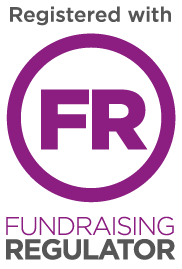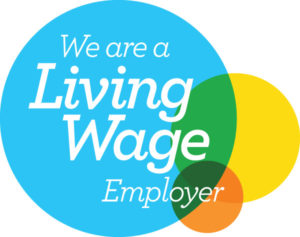“I’m stressed!”
Most of us will say it at some point in our lives, and many people will feel it too, but what is stress? Do you know the signs?
Stress has many guises, some visible, some invisible. We’ve listed some of the main symptoms here:
- Sweating
- Stomach issues
- Palpitations
- Muscle cramps
- Loss of appetite
- Overeating/drinking/smoking
- Change to sleep patterns
- Tiredness
- Headaches
- Bodily aches and pains
You may experience some, or all of these and they could be the first signs that you are not feeling like your ‘normal self’. Symptoms like these can affect your thoughts and feelings. You may begin to experience feelings of dread, anger, sadness, worry, frustration and fear and if they are not recognised and acknowledged they can turn into something more.
Everyone’s stress levels are different and struggling doesn’t ever mean you are weak, or incapable. Everyone needs support at times.
Often stress is the result of too many things in your life spilling over the level of coping you are used to, and it becomes too much. Think of it a bit like overfilling a glass of water; if your glass is already full then it doesn’t take too much more for the water to overflow.
Caring responsibilities, although rewarding, can be stressful as you strive to always do your best for the person you are caring for. When something unexpected happens, perhaps illness which means a child is off school, or a letter about a hospital visit, this can mean you have to quickly alter your plans and disrupt your carefully scheduled day.
This is where stress can overflow. For example – you’re a parent with a full-time job, who also manages the house, does the school run and organised all the meals for the family, which includes your elderly parents. If one of the people you are caring for becomes ill, this can quickly alter your day. It might mean you aren’t around for your children’s school run, or you don’t have time to shop for the evening meal, or you can’t attend an important meeting at work because you must run your mum to an appointment. You may want to stay calm and rearrange everything but it might not be realistic. Something has to give, and usually it will be you – the carer.
You may find that people closest to you notice you are stressed before you do. They may offer to help you with your caring responsibilities, some of the tasks adding to your mental load, or help you work out a strategy for prioritising different things you have to do.
Here at Disability Positive we have Mental Health First Aiders, like me. We are team members that have been trained to spot the signs of someone struggling in the workplace. You may have them at your work too.
Mental Health First Aiders are there to lend people a listening ear, offer support and in some cases advice on what to do with how they are feeling. It can be difficult for someone to share their feelings, but if stress is caught and addressed early it can prevent further mental health problems like anxiety and depression.
Our mental health is fragile and can be negatively impacted at any time, so learning ways to manage your own mental health are vital.
Ways to support your own positive mental health include;
- eating a healthy balanced diet
- doing some gentle exercise like walking, meditation or yoga
- getting enough high-quality sleep – easier said than done!. To improve your sleeping patterns, try putting your mobile in a drawer for a few hours before bedtime, and reducing your exposure to negative news.
- a chat with a friend – face to face or over the phone
- snuggling up to watch a good film or your favourite tv show
These can all help you to de-stress and fix any imbalances of the day.
Your nearest and dearest are your mental health champions. Let them in and let them support you to keep your stress levels manageable. If this feels uncomfortable, it might be easier to talk to someone outside of your existing circle. This is where counsellors, helplines, mental health charities and organisations, your GP and your HR team at work can be beneficial.
The sooner you address the things in your life which can increase your stress levels and learn which tools and activities help you manage your stress, the quicker you will be able to get it back under control.
This Stress Awareness Month remember to listen to your thoughts and feelings and if they are not quite right, it may be stress. Learn to recognise and work on lowering your stress levels if you can and if not, ask for help.
A blog from Diane Christopherson, a Mental Health First Aider at Disability Positive





